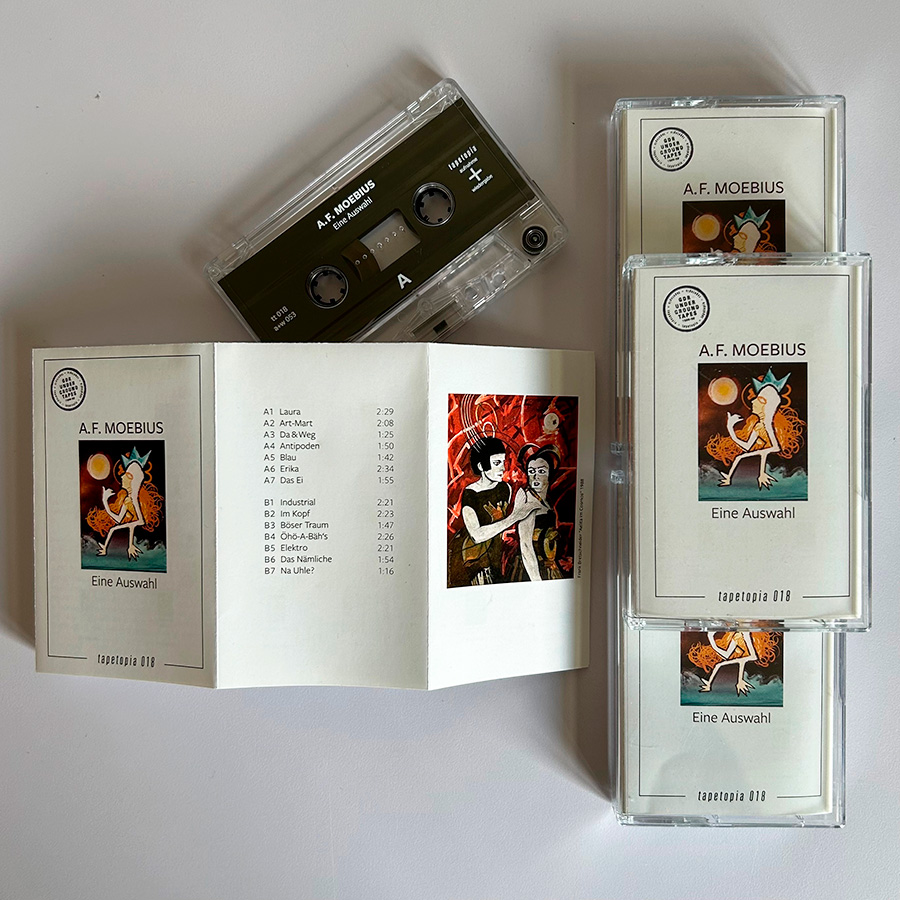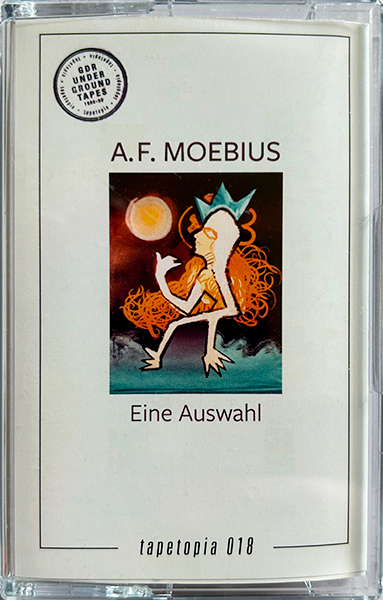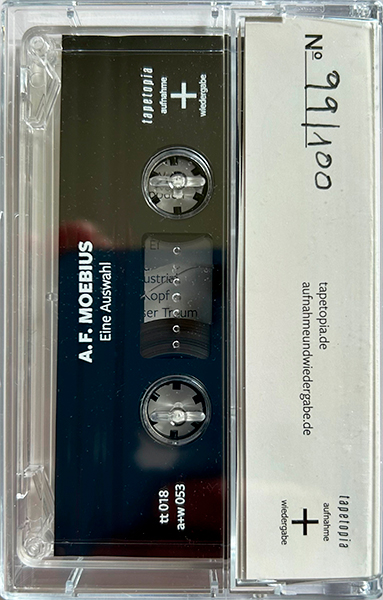 Frank Bretschneider (1956) was active in the subcultural scene of the GDR’s Karl-Marx-Stadt (nowadays Chemnitz). The Karl-Marx-Stadt area formed a nucleus of non-conformist activities in the GDR. Away from a prescribed socialist realism, a countercultural approach unfolded here as openly as was possible within a closed-off society. Inspired by mathematician and astronomer August Ferdinand Möbius, Bretschneider adopted the alias A.F. Moebius. The mathematical Möbius strip quintessentially epitomized Bretschneider’s tinkering with tape loops and machines; the infinite loops thus created also echoed the self-referentiality of musical structures.
Frank Bretschneider (1956) was active in the subcultural scene of the GDR’s Karl-Marx-Stadt (nowadays Chemnitz). The Karl-Marx-Stadt area formed a nucleus of non-conformist activities in the GDR. Away from a prescribed socialist realism, a countercultural approach unfolded here as openly as was possible within a closed-off society. Inspired by mathematician and astronomer August Ferdinand Möbius, Bretschneider adopted the alias A.F. Moebius. The mathematical Möbius strip quintessentially epitomized Bretschneider’s tinkering with tape loops and machines; the infinite loops thus created also echoed the self-referentiality of musical structures.
In the early 1980s Bretschneider published the independent edition A Drei, then went on to set the tone with cult band AG Geige. Under the alias A.F. Moebius, Bretschneider’s release Eine Auswahl was a distillate of creative periods from 1985 to ’87. Eine Auswahl was based on work with the KORG M-20 synthesizer. Material used included fragments, musical phrases, AMIGA radio play records or randomly targeted radio snippets. Eine Auswahl was originally released in 1988 as the B-side of a split cassette with Heinz & Franz on Bretschneider’s underground label klangFarBe in an edition of about 50 copies. All tracks were produced in Bretschneider’s Sonnenklang home studio, including eight pieces for slide images by photographer and film maker Dieter Wuschanski.
Bretschneider adopted Holger Czukay’s principle of treating the recording studio as one’s instrument. His A.F. Moebius project was also influenced by soundtracks of science fiction films such as Ikarie XB1 – Voyage to the End of the Universe, which was shot in 1963 after a novel by Stanislaw Lem. His fluid transition from belief to scepticism about progress, already hinted at in the project name A.F. Moebius, harks back all the way to Bretschneider’s childhood. At the age of ten he discovered science fiction as a way of expanding the horizons of his “confined domicile”. As a consequence, Frank Bretschneider established independent platforms for himself. This required courage in the GDR and an unusually high degree of creative power.
(from the liner notes by Heinz Havemeister & Henryk Gericke. Translation: Stefan Widdess)


